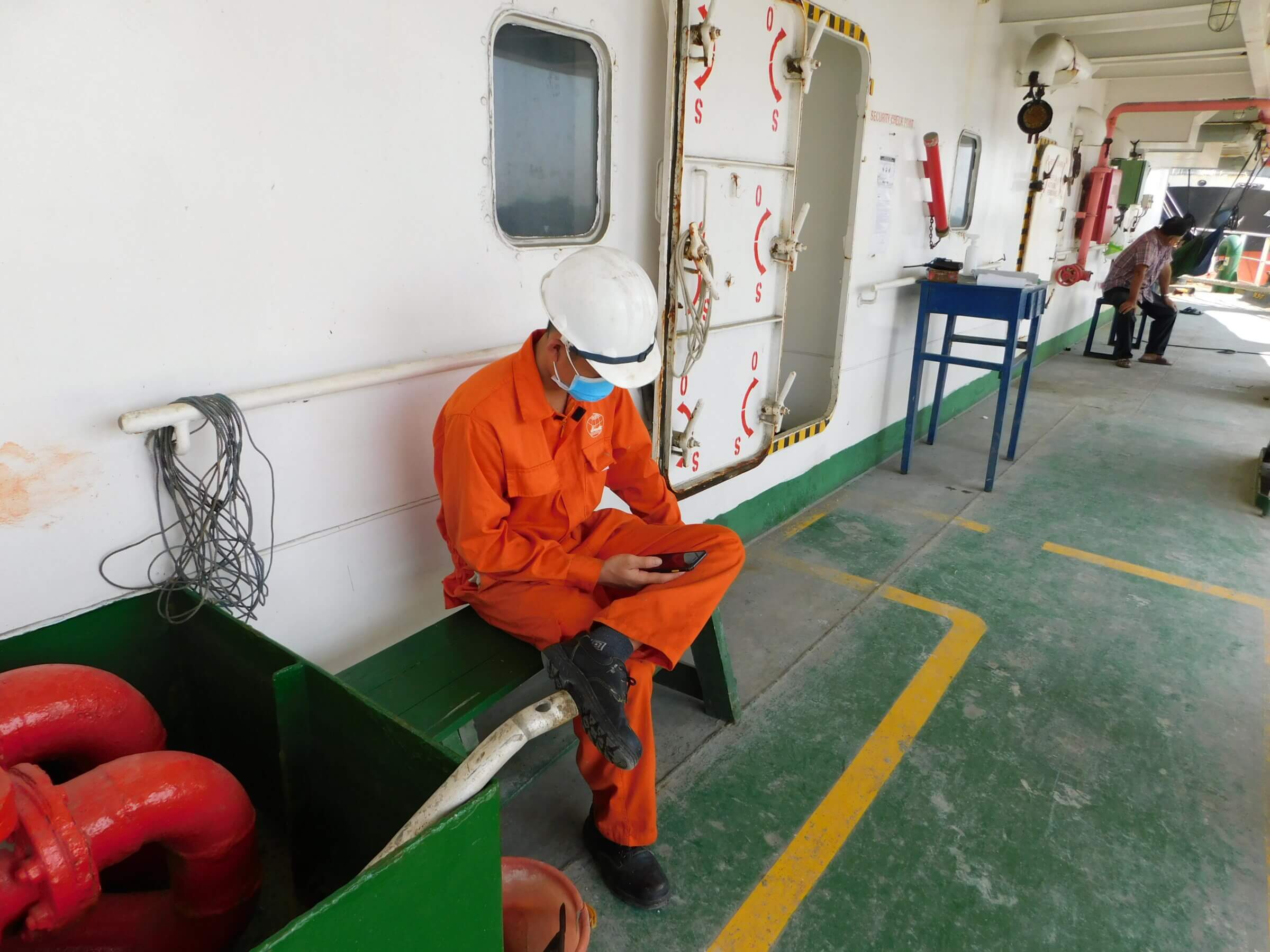Resources
A collection of free resources to help you raise funds and share the work we do

By Verity Relph
There has, in recent years, been an encouraging drive within the maritime industry to improve living and working conditions for seafarers. However, comprehensive data to demonstrate this commitment is somewhat lacking.
Leading ship inspection, technology and data business, Idwal Marine saw an opportunity to run a wide-ranging study on the real-world working and living conditions experienced by seafarers. As a data-driven business, the company was in the perfect position to capture and explore the experiences of seafarers across the global maritime fleet.
The result has been the Social Impact Report, released in spring of this year.
Thom Herbert, key account manager (Asia) and crew welfare advocate for Idwal, explains the impetus behind the report: “In part, it was to address the underrepresentation of the ‘S’ in ESG in the maritime industry and to provide objective data on crew welfare, collected at the source. The report was also designed to align with the Mission to Seafarers’ Seafarers Happiness Index (SHI), providing an objective view to complement the ‘sentiment’ view of crew represented in SHI.”
Drawing on data from over 13,000 vessel inspections conducted by Idwal’s surveyors, the report assesses ten critical pillars of seafarer welfare, including accommodation, connectivity, health, and recreation. The report reveals significant gaps between industry commitments and the reality for crew members across the globe.
Some of the poorest performing areas were around facilities on board. “Connectivity was the worst performing pillar with an average score of 5.4 out of 10, highlighting major deficiencies in providing internet access for crew,” says Herbert. “While not unexpected, an alarming finding was that 12% of vessels have no internet access at all.”
Similar findings on connectivity have consistently appeared in the Seafarers Happiness Index, and as these reports have shown, seafarer morale is heavily entwined in seafarers’ ability to contact their loved ones whilst at sea.
Exercise boost
Another concerning area was recreation, which scored 6.5 out of 10, indicating a lack of adequate leisure activities for seafarers. Having the opportunities and facilities to keep fit and relax is crucial for maintaining work-life balance and overall wellbeing.
By far the poorest performing vessel type for these categories was general cargo. Indeed, the findings reveal significant variations between ship types, with general cargo vessels often performing worse across multiple categories. Vessel age and size also impacts performance, with older and smaller vessels typically bringing in worse results.
More positively, cultural and religious inclusivity scored well, with 97% of crew reporting access to celebrate their events. This indicates that most ship operators are recognising the importance of allowing crew to observe events and practices significant to their cultural heritage or faith, which in turn can boost morale and a sense of community on board.
Overall, the report revealed an average score of 72.4. The gap from perfection of 27.6 shows that there is still much room for improvement across the industry.
By providing comprehensive, transparent data and a consistent framework for assessing performance, the report aims to empower maritime industry stakeholders to make more informed, socially responsible decisions over seafarer welfare. Charterers, insurers, ship owners and regulators can identify areas for positive change and investment to improve the lives and working conditions of crews and also improve their ESG credentials.
Herbert highlights several key changes within the industry that Idwal would like to see:
“Overall, we believe the industry should prioritise crew welfare as an essential component of sustainable and responsible maritime operations, with particular focus on areas identified as deficient in the report,” Herbert concluded.